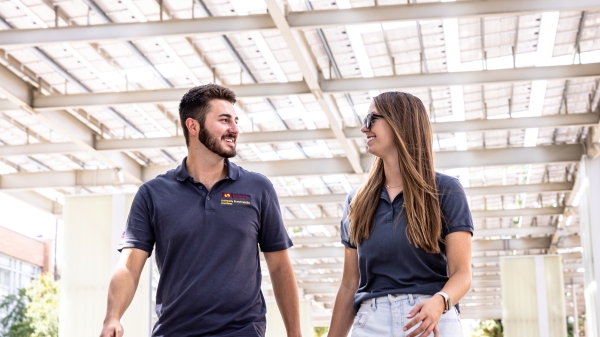ASU geography professor wins NSF mid-career award

Wenwen Li, professor in the ASU School of Geographical Sciences and Urban Planning.
Wenwen Li, professor in Arizona State University's School of Geographical Sciences and Urban Planning and affiliate faculty member of ASU’s Spatial Analysis Research Center, was selected as a recipient of the National Science Foundation’s Mid-Career Advancement (MCA) award.
The MCA award is the only cross-disciplined, career-oriented award that aims to protect the time and resources of mid-career scholars, enabling applicants the opportunity to concentrate on research and training while building synergistic and mutually beneficial partnerships.
“I am super excited and humbled to receive this Mid-Career Advancement award from NSF. In preparation of the proposal, I have received tremendous support from many of my ASU colleagues, and I cannot thank them enough,” said Li, who specializes in spatial analysis and using cyberinfrastructure and artificial intelligence to explore new questions about the geographic world. “I am viewing this award not only as an opportunity to advance my own career, but also a good timing to return my service back to the community to help junior and other mid-career scholars to boost their careers, increase visibility, develop leadership to achieve amazing success and happiness.”
The award will support Li’s research that explores new ways of integrating artificial intelligence, geospatial analysis and cyberinfrastructure into Arctic permafrost research.
In partnership with Anna Liljedahl, an Arctic permafrost hydrology expert from Woodwell Climate Research Center, Li aims to develop novel GeoAI (geospatial artificial intelligence) solutions to enable automated, high-resolution mapping and the quantification of permafrost thaw at a pan-Arctic scale.
“Polar regions play a vital role in Earth’s climate, ecosystems and economy. Unfortunately, climate change is driving dramatic changes in the Arctic ecosystem, endangering its natural environment, infrastructure and lives,” Li said. “Arctic permafrost, ground that remains below 0 degrees Celsius for at least two consecutive summers, is at the center of this change.”
By developing new GeoAI solutions, Li and Liljedahl hope to create a high-resolution dataset that quantifies permafrost thaw and helps scientists gain a better understanding and accurate prediction of the landscape changes in the Arctic.
Additionally, the research pair will co-create an initiative called “Women in Polar Cyberinfrastructure” to diversify the field of cyberinfrastructure, AI and Arctic science by offering training to more female scholars and underrepresented minorities.
“I have always had a great interest in applying data science methods to solve environmental problems, especially those endangering the polar regions,” Li said. “This award focuses exactly on career advancement in polar data science; it offers an exciting opportunity for me to build a large collaboration network with Arctic scientists to broaden and deepen the applications of various computational solutions that my team has developed for better problem solving in the Arctic.”
More Environment and sustainability

Charles Redman, founder of the School of Sustainability, faces a new adventure: Retirement
At the retirement celebration for Charles Redman on Oct. 22, two messages persisted: Redman’s contributions to Arizona State…

10 climate insights to guide our future
A group of globally renowned social, natural and climate scientists has once again convened to offer their newest annual…

The future is green: Job demand translates to high employability for ASU sustainability grads
A 2023 report by Forbes on the state of green jobs confirmed what Arizona State University has been trumpeting for years:…